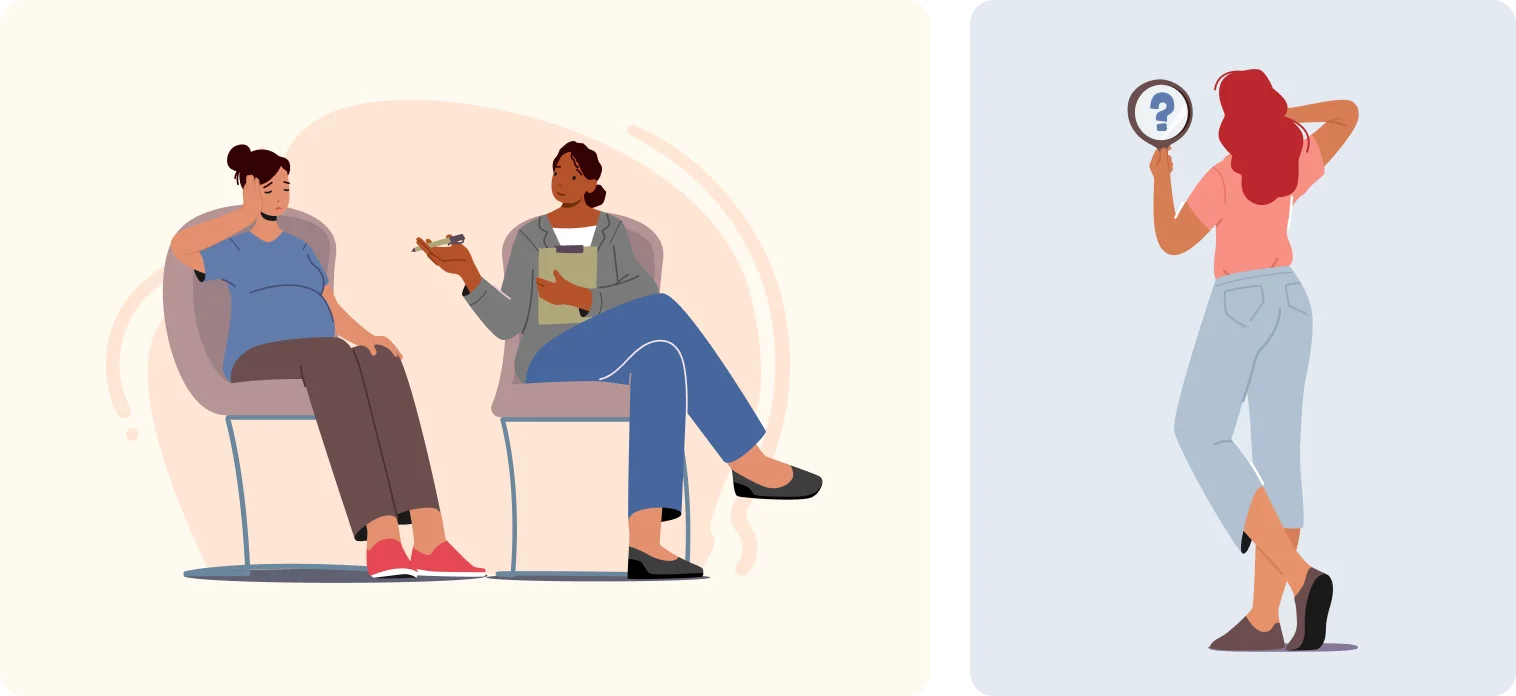Overview
What is Schizophrenia?
Schizophrenia and other psychotic disorders are a group of chronic mental illnesses that can cause a person to not be able to distinguish their own thoughts and ideas from reality. They may result in some combination of hallucinations (perceiving things that are not there), delusions (holding false beliefs), and extremely disordered thinking and behaviour that significantly impairs daily functioning and can be disabling.

Types
- Schizophrenia is a chronic and severe mental disorder that typically emerges in late adolescence or early adulthood. It is a complex condition with a range of symptoms of psychosis (hallucinations, delusions, and disorganised thinking and speech), abnormal motor behaviour, and negative symptoms (such as diminished emotional expression or lack of motivation).
- Schizophreniform disorder shares similarities with schizophrenia in terms of symptoms but has a shorter duration—at least 1 month but less than 6 months.
- Schizoaffective disorder has symptoms of both schizophrenia and mood disorder, such as episodes of mania or depression.
- Brief psychotic disorder is a sudden and brief (usually less than 1 month) episode of psychosis.
- Delusional disorder is persistent, non-bizarre delusions that are not accompanied by other significant psychotic symptoms.
Causes
The exact causes of schizophrenia and other psychotic disorders are not fully understood. However, research suggests that a combination of genetic, environmental, and neurobiological factors, including:
- Genetics or family history—though genetic mutations associated with these disorders have not been definitively identified.
- Neurochemical imbalances in the brain—dopamine and glutamate.
- Structural and functional brain abnormalities.
- Prenatal issues—such as maternal infections during pregnancy, exposure to toxins or drugs, disruptions in neuronal migration (synaptic pruning, and connectivity), and complications during birth.
- Substance abuse—particularly cannabis and certain stimulants.
Symptoms
The symptoms of schizophrenia and other psychotic disorders usually affect thinking (cognition), perception, emotions, and behaviour. But the signs of schizophrenia can vary among individuals and may change over time. Here are the most common symptoms to look out for:
- Delusions—false beliefs not based in reality, like thinking a major catastrophe is about to occur. (Delusions occur in people with schizophrenia)
- Hallucinations—seeing or hearing things (most common) that don’t exist but feeling it is 100% real
- Disorganised thinking and speech—fragmented and incoherent speech, answers to questions may be partially or completely unrelated (sometimes known as word salad)
- Extremely disorganised or abnormal motor behaviour—unusual behaviours, unpredictable or excessive movements, inappropriate responses or lack of response, bizarre posture, etc.
- Negative symptoms—reduced or lack of ability to function normally, loss interest in everyday activities (apathy), socially withdrawn, lack of display of emotion
- Cognitive deficits—impairments in attention, memory, and executive functions, decision-making, and problem-solving
- Mood disturbances—such as depression or mania (especially in Schizoaffective disorder)
When do symptoms first appear?
Symptoms of schizophrenia usually first appear in early adulthood and must persist for at least six months for a diagnosis to be made. Men often experience initial symptoms in their late teens or early 20s while women tend to show first signs in their 20s and early 30s. More subtle signs may be present earlier, including troubled relationships, poor school performance and reduced motivation.


























